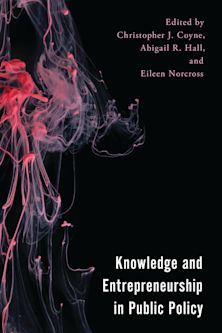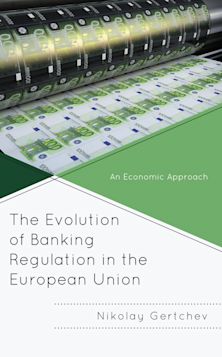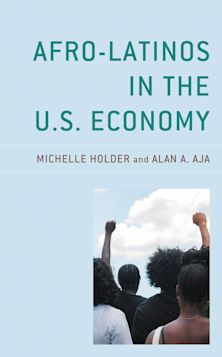- Home
- ACADEMIC
- Economics
- Introductory & General Economics
- Population, Migration, and Socioeconomic Outcomes among Island and Mainland Puerto Ricans
Population, Migration, and Socioeconomic Outcomes among Island and Mainland Puerto Ricans
La Crisis Boricua
Population, Migration, and Socioeconomic Outcomes among Island and Mainland Puerto Ricans
La Crisis Boricua
You must sign in to add this item to your wishlist. Please sign in or create an account
Description
At the landmark centennial anniversary of the 1917 Jones-Shafroth Act, which granted Puerto Ricans U.S. citizenship, the island confronts an unfolding humanitarian crisis initially triggered by an acute economic crisis surging since 2006. Analyzing large datasets such as the American Community Survey and the Puerto Rican Community Survey, this book represents the first comprehensive analysis of the socioeconomic and demographic consequences of “La Crisis Boricua” for Puerto Ricans on the island and mainland, including massive net outmigration from the island on a scale not seen for sixty years; a shrinking and rapidly aging population; a shut-down of high-tech industries; a significant loss in public and private sector jobs; a deteriorating infrastructure; higher sales taxes than any of the states; $74 billion in public debt plus another $49 billion in unfunded pension obligations; and defaults on payments to bondholders. This book also discusses how the socioeconomic and demographic outcomes differ among stateside Puerto Ricans, including recent migrants, in traditional settlement areas such as New York versus those in newer settlement areas such as Florida and Texas. Florida is now home to 1.1 million Puerto Ricans (essentially the same number as those living in New York) and received a full third of the migrants from the island to mainland during this time. Scholars interested in the transition of migrants into their receiving communities (regardless of the Puerto Rican case) will also find this book to be of interest, particularly with respect to the comparative analyses on earnings, the likelihood of being impoverished, and self-employment.
Table of Contents
Chapter 2: The Growth and Emergence of the Puerto Rican “Nation”: Economic Development, Mass Migration, and Population Composition
Chapter 3: 2006: The Year of the Perfect Storm and the Onset of La Crisis Boricua
Chapter 4: On the Recent Puerto Rican Migrants
Chapter 5: Migration and Changes in the Settlement Patterns of Puerto Ricans
Chapter 6: How Were Puerto Ricans Faring in the New Settlements versus Traditional Areas
Chapter 7: The Role of Gender on Puerto Rican Social Mobility Outcomes
Chapter 8: Shaping the Business and Political Landscape on the Mainland
Chapter 9: The Continued Evolution of Politics and Socioeconomic Processes and Policies: Puerto Rico in the 21st Century
Product details
| Published | Nov 15 2017 |
|---|---|
| Format | Ebook (Epub & Mobi) |
| Edition | 1st |
| Extent | 242 |
| ISBN | 9781498516877 |
| Imprint | Lexington Books |
| Illustrations | 28 BW Illustrations, 24 Tables |
| Publisher | Bloomsbury Publishing |
About the contributors
Reviews
-
The analysis of both Puerto Rico and the United States is comprehensive and fascinating and will be a landmark for many other scholars interested in studying Puerto Ricans on the island as well as in the United States. The analysis of entrepreneurship in the United States is innovative in my opinion, among many other impressive analyses.
José G. Caraballo, University of Puerto Rico, Cayey
-
This book is a must-read for anyone interested in understanding demographic and economic developments in Puerto Rico since the turn of the Century. The factors that brought about la Crisis Boricua have been brewing for several decades. However, starting in 2006, a deep and protracted economic depression in Puerto Rico has prompted the largest exodus of Puerto Ricans to the Mainland in history. Mora, Davila and Rodríguez do a great job of analyzing and comparing the socioeconomic outcomes of both Island and Mainland Puerto Ricans, during this pivotal moment in the history of the People of Puerto Rico.
Mario Marazzi Santiago, Institute of Statistics of Puerto Rico



































